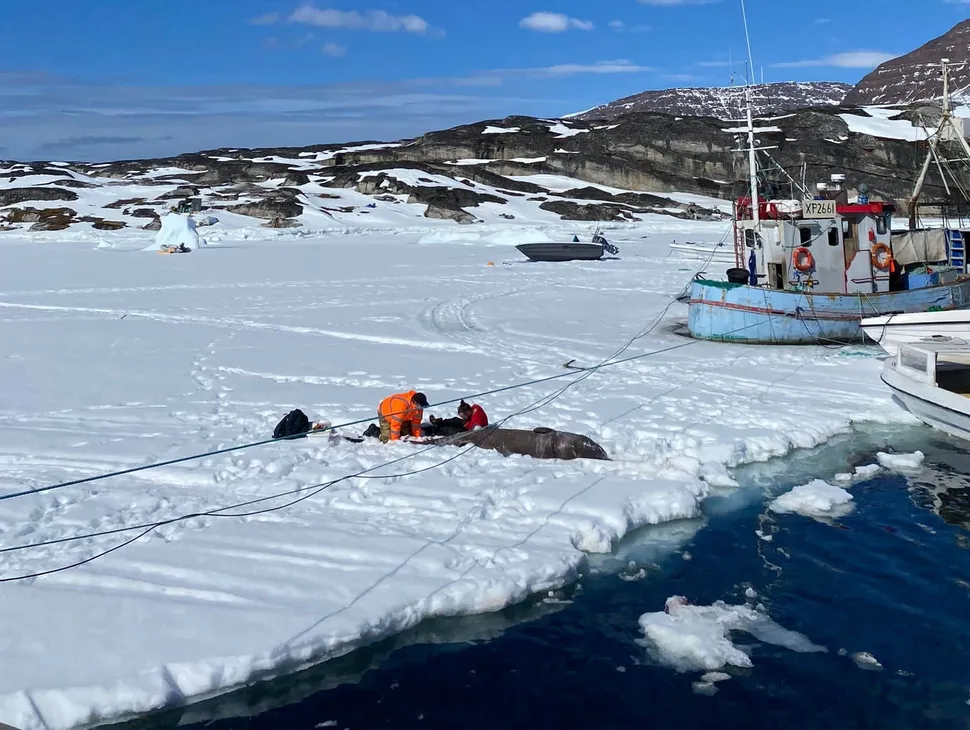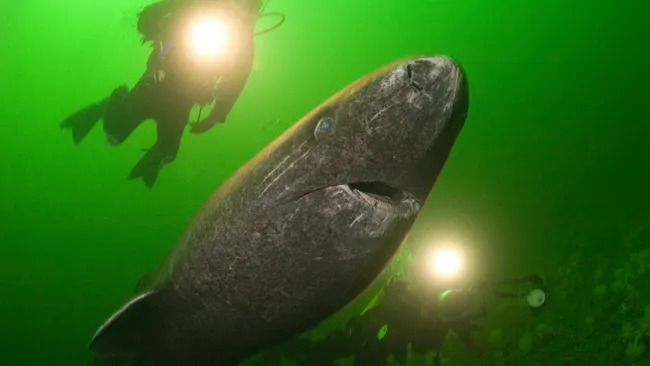New research has uncovered the mystery behind the remarkable longevity of Greenland sharks, the world’s longest-living vertebrates. These sharks can live for hundreds of years, with some potentially exceeding 500 years in age, making them extraordinary among their peers.
Found in the Arctic and North Atlantic Ocean at depths of up to 8,684 feet (2,647 meters), Greenland sharks have long puzzled scientists with their extended lifespans. While previous assumptions linked their longevity to frigid environments and minimal movement, a recent study presented at the Society of Experimental Biology Conference in Prague has proposed a different explanation: their unchanging metabolism.
Lead author Ewan Camplisson, a doctoral student at the University of Manchester, explained to Live Science that unlike most animals where metabolism slows with age, the metabolic activity in Greenland sharks remains constant. This unique trait means they do not exhibit typical signs of aging seen in other species, such as reduced energy production and cellular repair.

To investigate this, researchers analyzed tissue samples from the muscle of 23 Greenland sharks captured near Disko Island in central Greenland. By measuring enzyme activity in these samples and correlating it with the sharks’ estimated ages (ranging from 60 to 200 years old), they found no decline in enzyme activity across different age groups.
“In most animals, you would expect enzymes to become less efficient over time,” Camplisson noted. However, this study revealed that the sharks’ enzymes maintained consistent activity levels regardless of age, suggesting a lack of age-related degeneration and likely contributing to their exceptionally long lifespan.
Interestingly, while enzyme activity was higher at warmer temperatures—an expected finding—the study did not find evidence that Greenland sharks’ enzymes were uniquely adapted to cold conditions. This implies that if these sharks were exposed to warmer waters due to climate change, their metabolism might increase significantly, potentially altering their ecological dynamics.
Given projections of rising global temperatures impacting Arctic habitats faster than other regions, understanding how these sharks’ metabolism functions could be crucial for their conservation. Camplisson emphasized the need for further research into other aging markers and metabolic processes to develop strategies that safeguard these ancient creatures in a changing climate.
